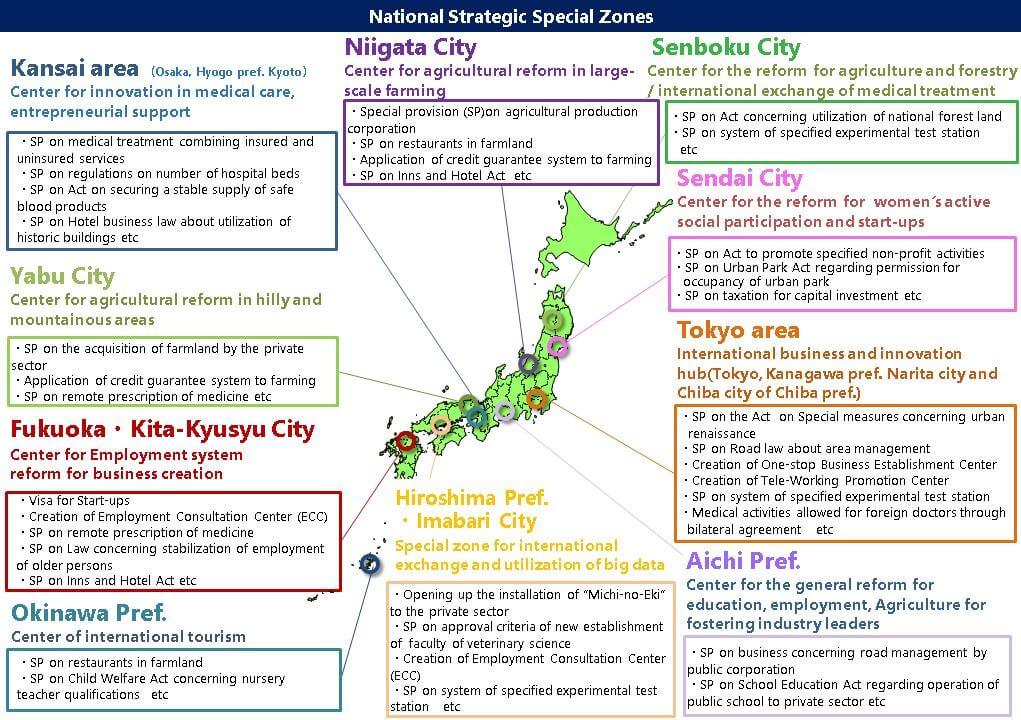Business Opportunities
Can Businesses Flourish in Rural Japan?
While we have focused on the reasons for Japan’s rural decline in previous pieces, we think there are many reasons to be optimistic and want to highlight the expanding business horizon. What are some of the investment opportunities? Which areas have the greatest business potential? We will explore the landscape below.
You can probably guess the list of reasons why moving to rural Japan makes sense. A slower paced life with more and cheaper space to live, lower overall cost of living, the benefits of cultural immersion, natural beauty, and a sense of community surely top the list. We would agree!
Although there are many pluses associated with rural living, there are obvious challenges that cannot be ignored including depopulation, labor shortages, and services on par with urban areas. Throughout our series, we have openly discussed these issues. Even so, from a business perspective, rural Japan offers many organizations lower operating costs, access to less-expensive labor, reduced competition, and even an abundance of natural resources. Let us take a look at some monetary incentives that make rural Japan even more attractive.
This is the last article of a six-part series on Japan’s Rural Revitalization. Together with each article, we’re also discussing each topic on Japan Unleashed, Parthenon Japan’s new official podcast.
Tax Initiatives
There are tax advantages highlighted by the Japanese government which serve as additional inducements. Seemingly endless, tax breaks are available and aimed at the private sector to spur growth in rural Japan.
As discussed in earlier pieces, a key strategy for rural growth is a collaboration between the public and private sectors. One recent development from the Japanese government and ruling parties are tax schemes whereby proceeds from stock sale profits may be applied toward startup investments. Under the plan, up to ¥2 billion in stock-trading profits will be tax-exempt when reinvested in startups. This is an innovative, out-of-the-box idea that should appeal to both long-term investors and day traders alike.
On top of this effort, we would urge going one step further by offering an additional enticement to those receiving inheritance from loved ones upon death. In exchange for providing a certain percentage of one’s inheritance to targeted start-ups, the overall inheritance tax bill would be accordingly reduced. This would help start-ups and also give Japan residents one more reason to call Japan home.
Wishful thinking aside, tax incentives are a crucial part of spurring growth in Japan. One recent tax revision of note promotes the introduction of 5G technology through tax credits. Due to this revision, corporations are now entitled to vie for either a 30% special depreciation rate or a 15% tax credit when investing in internet infrastructure. Introduced as part of the 2020 Tax Reform Act, it is an excellent way to get the private sector more involved in needed change.
Another recent incentive appears in the form of special tax treatment for investment in certain types of business equipment. SME’s may claim accelerated depreciation of 100% on core acquisition costs (or claim a special tax credit equivalent to 10% of the base acquisition cost on designated equipment). A maximum tax credit of 20% on the taxpayers’ corporate tax liability could be applied.
There is also Japan’s “Open Innovation Tax Incentive” which permits companies to deduct from their taxable income 25% of share purchase amounts in start-ups (for partnerships and other similar business arrangements).
Then there is the “Incentive for New Investment into Production Facilities” which calls for any industry that invests in new production facilities to claim either a 30% ‘special’ depreciation or 3% tax credit on acquisition cost (up to 20% of corporate tax liability). These efforts should further spur interest in production expansion in rural areas.
Additional support also comes from the Finance Market Entry Office, a government support entity assisting in everything from preliminary consultants to office registration (and all in English), and the Financial Start-Up Program which provides up to ¥20 million to cover business establishment costs for asset management/financial firms. We would be remiss not to also mention the Japan Finance Corporation which offers capital allocations in conjunction with private sector efforts.
Innovation Efforts
There are additional tax strategies to promote investment in “innovative corporations” whereby a corporation that acquires shares of a venture company is eligible for a special income deduction. Invest in a new venture and get a tax deduction. This is precisely what rural Japan needs.
As part of the Regional Revitalization Act, corporate tax filers making donations approved by regional entities are able to claim a tax credit against corporate, enterprise, and inhabitant’s taxes in addition to taking a deduction from the corporate tax. This is known as the Corporate Hometown Tax, (or furusato nozei system).
Under the 2020 Tax Reform Act, the deduction rate was doubled and a corporate taxpayer will be able to claim a deduction up to 90% of the donation amount.
A similar offering can be found via the Internet of Things (IoT) investment tax incentive which is linked to costs related to the development of data gathering and analytic information systems. A part of the ‘Innovative Data Utilization Plan’, companies can benefit from either accelerated depreciation (30%) or simple tax credit (3% or 5%) if they have acquired software as well as machinery or equipment worth ¥50 million or more.
All combined, these are just a few of many tax incentives which show that the government is serious about reversing rural Japan’s decline and stimulating investment via reduced taxation in target industries.
Business Growth
These government efforts are widespread and meant to stimulate growth nationally. Japan has designation specific areas of the country to achieve targeted growth. Japan’s ‘National Strategic Zones’ program offers a variety of investment incentives to local areas.

For some reason, Hokkaido is not one of the 10 special zones. We asked ourselves why, but could not come up with an answer. We also don’t understand why each zone does not have “innovation hub” or “innovation incubator” as designated targets. That seems like a no-brainer. But among our top picks, we liked the ideas of “Visa for Start-ups” (Yabu City) and a “Credit guarantee system for farming” (Niigata City).
Final Thoughts
Japan needs more business disruption and innovation brought on by additional risk taking. Tax incentives, public-private partnerships, and long-term commitment are part of the magic recipe. So is expanding immigration and easing migration regulations.
We also think more attention should be paid to the issue of cultural integration and acceptance. It is true that Japan has historically been a closed society. It is also true that Japan has an important choice to make for its future; watch its population decline and hope that women, AI, robots and drones will fill the labor shortage gap, or continue to accept non-Japanese as partners in prosperity.
Experience tells us that, over time, those non-Japanese who want to be here are very good at adapting to Japanese culture. People who learn Japanese, understand communicative norms and show patience are more likely to be accepted by their Japanese peers.
Japan remains the third-largest economy in the world. The government plans to increase its annual investment in new, high-growth businesses more than tenfold to ¥10 trillion ($80 billion) per year in order to launch 100,000 startups. Rural Japan is an excellent place for such start-ups to grow in a safe, clean, civil, and a comparatively inexpensive environment.



 Parthenon Japan
Parthenon Japan
 Parthenon Japan
Parthenon Japan
